
Dear Readers,
This is the fifth issue of our special newsletter RETHINK:DESIGN Climate Relevance to arrive in your in-box! In this series, we present examples of best practice for promoting the climate-friendly transformation of the economy and society. RETHINK:DESIGN shows what impact design has on resource use, emissions, the circular economy and climate protection.
We’re shining a spotlight on enterprising concepts, taking a look at what’s happening in the research sector and looking for new mindsets and approaches for accelerating design’s sustainable momentum.
RETHINK:DESIGN – let’s get started!
“It’s about a different mindset towards the way you do business!”
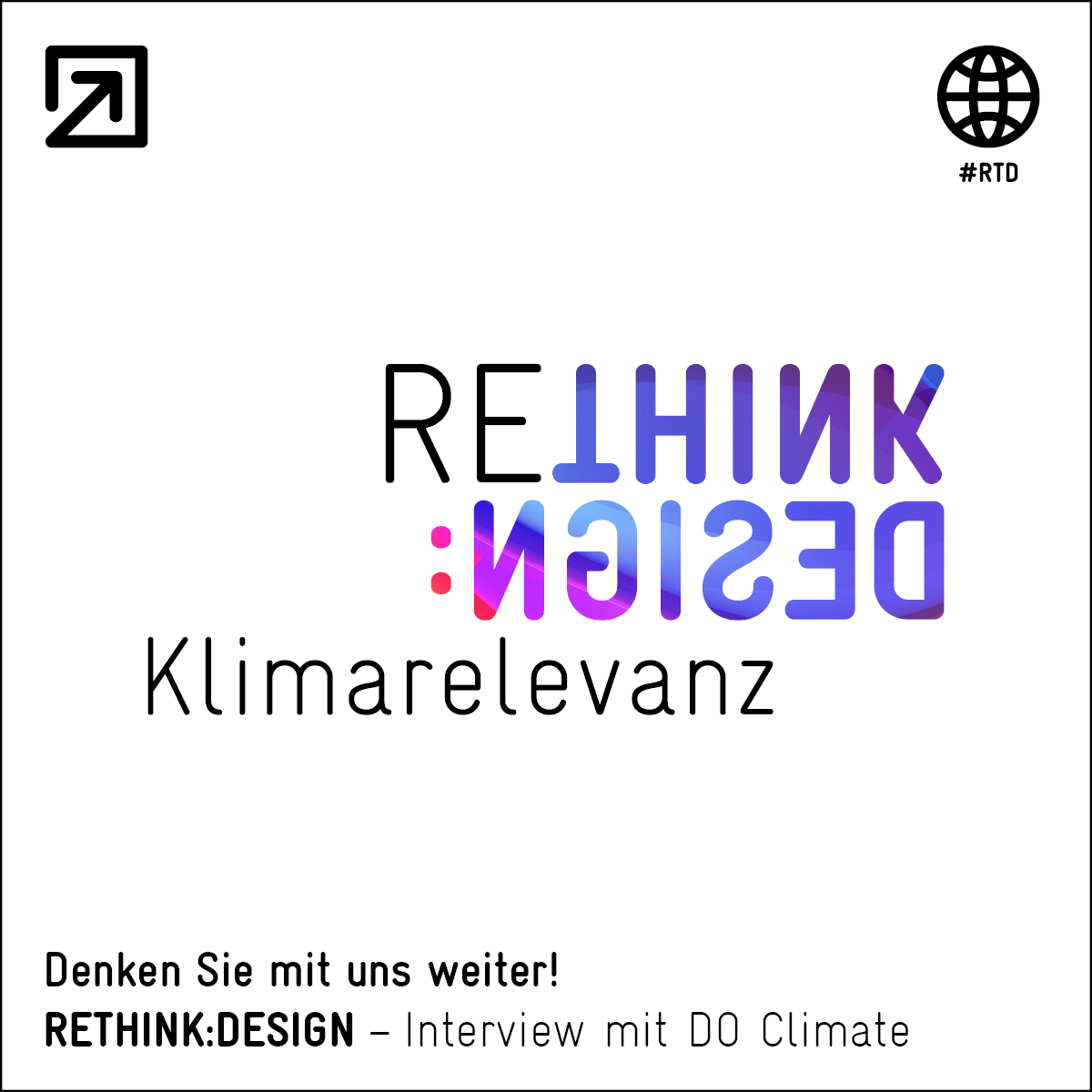
Climate Relevance
Let’s think the future! RETHINK:DESIGN – Interview with DO Climate
Many small and medium-sized enterprises, including design agencies, are facing the question as to what their own climate neutrality actually means – and, of course, how it can be achieved. One thing is clear: it’s an issue that belongs right at the top of the business agenda, regardless of whether the company is in the retail, production or service sector. That’s the only way businesses can successfully prepare for the market changes to come. Because that’s what tomorrow’s market expects – whether it’s B2C or B2B. “Only by consistently gearing your thinking towards climate protection and sustainability can you hope to develop tomorrow’s products today,” says Dr Odette Deuber. The environmental engineer is the owner of DO Climate in Tübingen, which advises clients – mostly owner-managed SMEs – on climate and sustainability strategies.
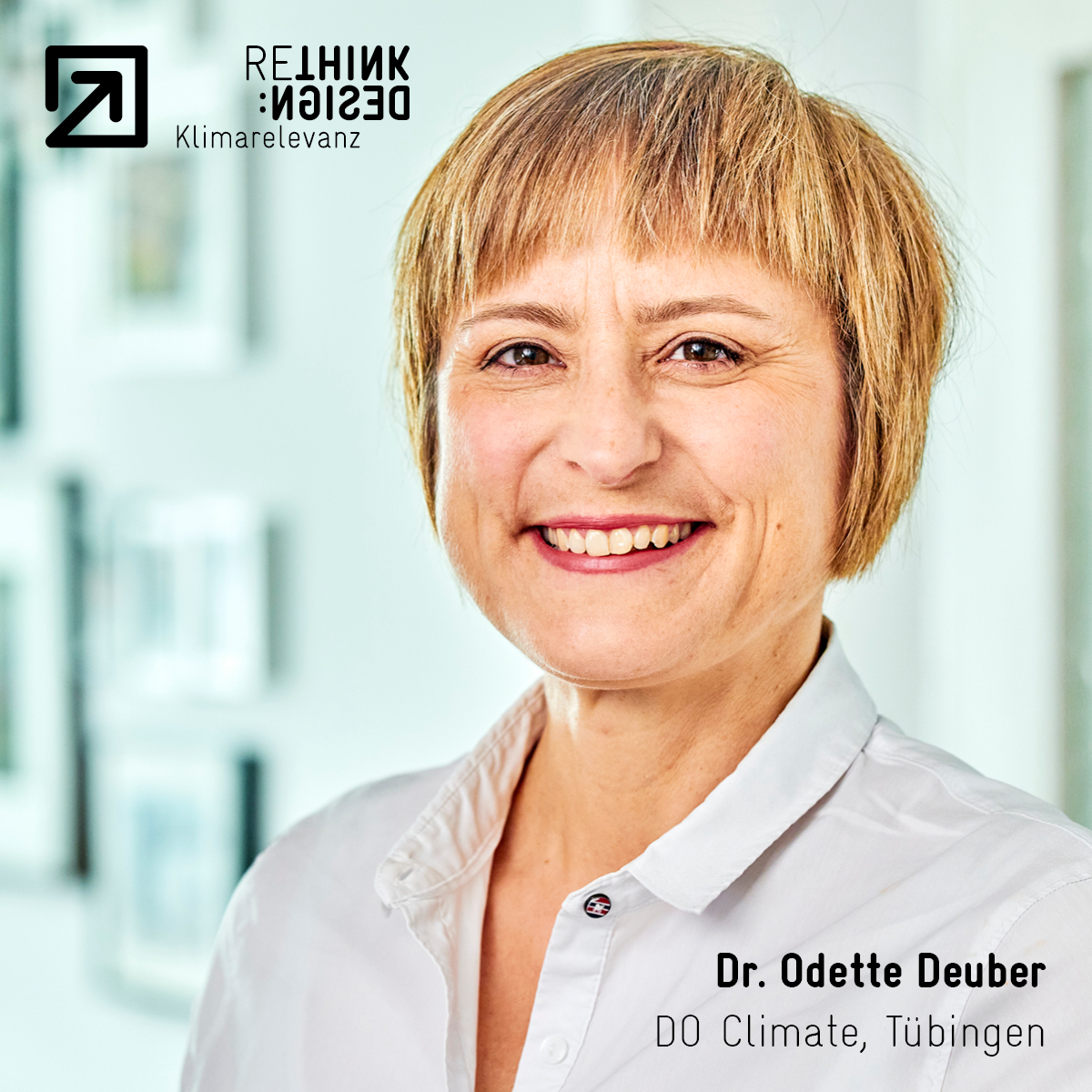
A conversation with Dr Odette Deuber of DO Climate
DO Climate was founded by Dr Odette Deuber in 2020.The five-strong team of climate protection and sustainability consultants advises SMEs and organisations on transformation. From 2013 to 2019, Dr Odette Deuber helped establish the KlimAktiv GmbH thinktank as managing partner and is on the board of the German Federation of Sustainable Economy (Bundesverband Nachhaltige Wirtschaft / BNW).www.do-climate.de
More and more companies are calling themselves climate-neutral. But when are you truly climate-neutral?
Even though everybody is talking about it, there’s no common understanding of what the term actually means. That’s partly also because its meaning is in the process of changing. In the past, the procedure for becoming climate-neutral was clear. I calculate my company’s footprint and reduce carbon emissions wherever possible. I offset the remainder with certificates that support emission reduction projects in developing and emerging countries. In principle, it was pretty simple. But the point is actually for a company to become climate-neutral along the entire length of the value chain by its own efforts, i.e. without offsets. In other words, the goal is that our business activities should no longer cause any greenhouse gas emissions – or even better, capture them. That’s precisely what we need creative design solutions for.
So climate neutrality isn’t that simple after all?
If a company is going to become climate neutral by its own efforts, it needs verifiable climate goals. It has to work out what the Paris climate goal, the 2-degree goal and the 1.5-degree goal mean for itself and its value chain. That goes hand in hand with another question: what should the company look like in the year 2035? Is it actually possible to become climate-neutral with the existing business model and products? Carbon accounting is important – on the one hand for determining the status quo, and on the other as a basis for developing the roadmap to climate neutrality. In addition to technical measures, there needs to be [...]
Click here to read the full interview.
Click on the links below to access our previous content:
Interview at sports equipment manufacturer Vaude
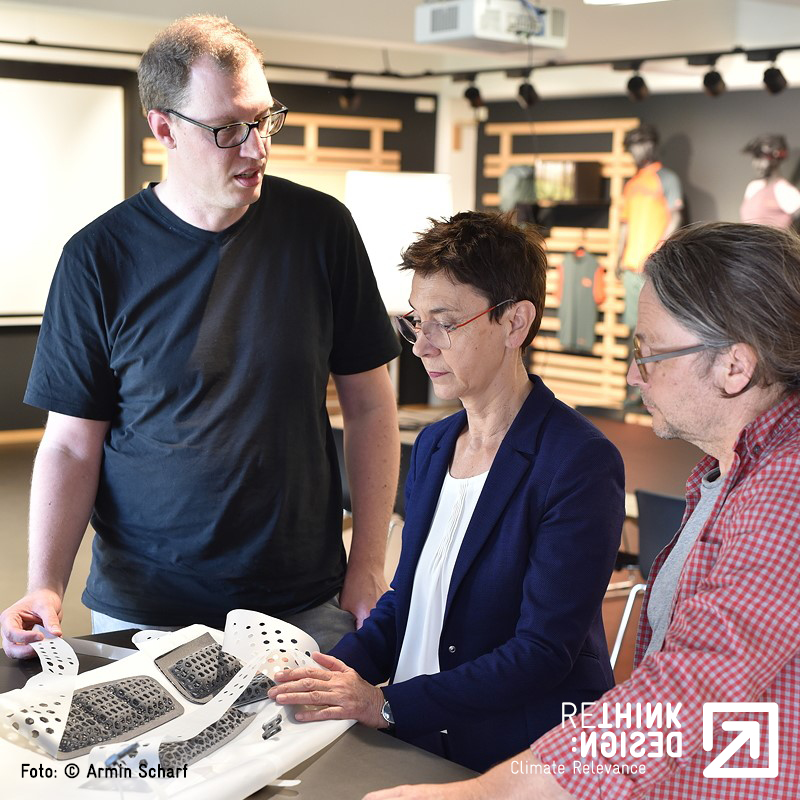
René Bethmann and Mario Schlegel (Vaude)
“What matters is that management wants the transformation!”
At its headquarters near Tettnang in Baden-Württemberg, Vaude has been climate-neutral since as far back as 2012. The outdoor brand is in the process of gradually switching its product portfolio to recycled or bio-based materials. We spoke to head of design Mario Schlegel and innovation manager René Bethmann about cooperation between technology and design, supply chains and the challenge of observing and evaluating innovations so as to ultimately implement them with partners. And: just because something looks sustainable doesn’t mean it really is sustainable.
Read the interview here.
Interview at design agency Ottenwälder und Ottenwälder
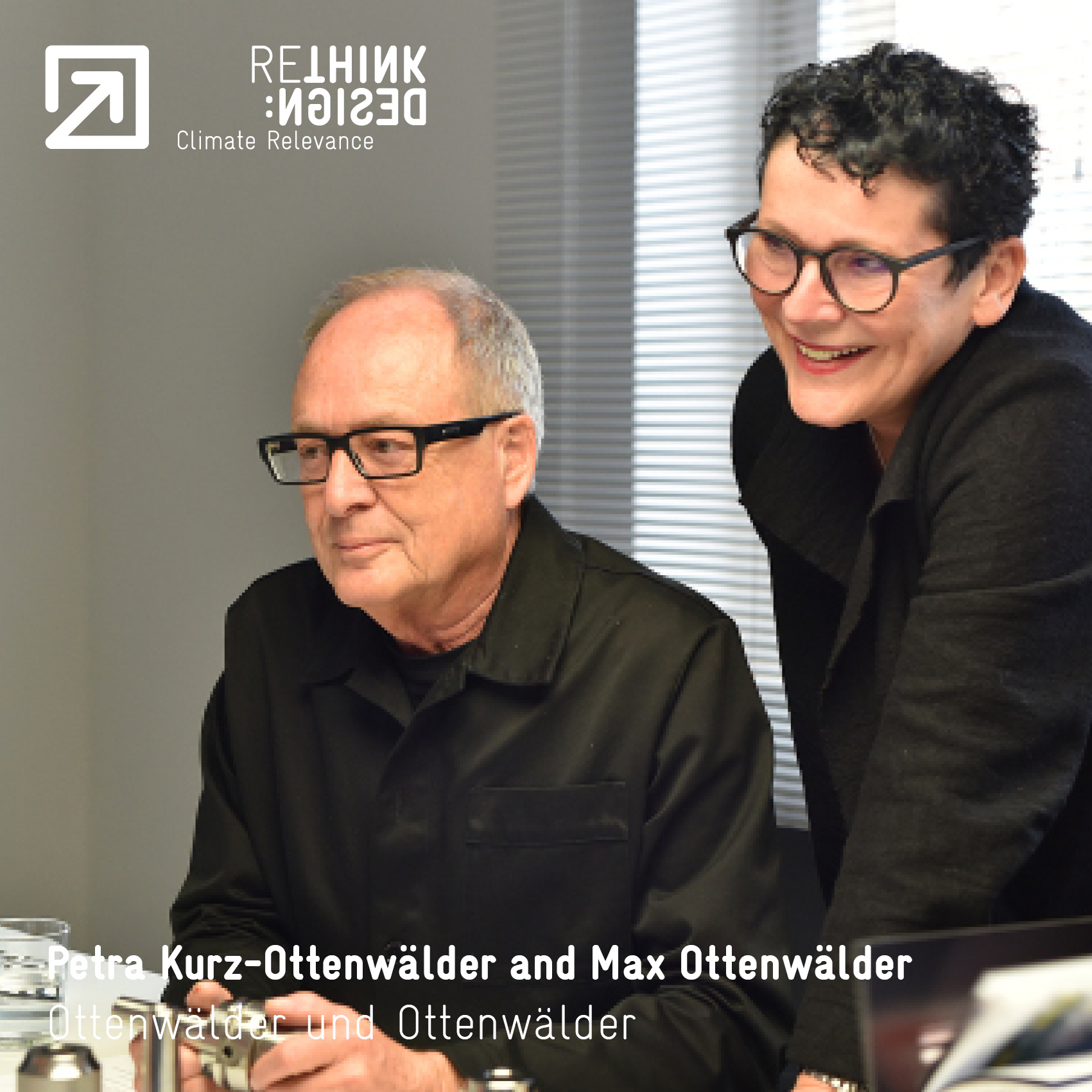
Click here to read the full interview.
Click on the links below to access our previous content:
Interview at sports equipment manufacturer Vaude

René Bethmann and Mario Schlegel (Vaude)
“What matters is that management wants the transformation!”
At its headquarters near Tettnang in Baden-Württemberg, Vaude has been climate-neutral since as far back as 2012. The outdoor brand is in the process of gradually switching its product portfolio to recycled or bio-based materials. We spoke to head of design Mario Schlegel and innovation manager René Bethmann about cooperation between technology and design, supply chains and the challenge of observing and evaluating innovations so as to ultimately implement them with partners. And: just because something looks sustainable doesn’t mean it really is sustainable.
Read the interview here.
Interview at design agency Ottenwälder und Ottenwälder

Petra Kurz-Ottenwälder and Max Kurz-Ottenwälder
(Ottenwälder und Ottenwälder)
“It’s really not that complicated!”
Can design agencies be climate-neutral? Yes, says Petra Kurz-Ottenwälder.
Read the interview here.
(Ottenwälder und Ottenwälder)
“It’s really not that complicated!”
Can design agencies be climate-neutral? Yes, says Petra Kurz-Ottenwälder.
Read the interview here.
Interview with Christiane Nicolaus, Design Center Baden-Württemberg
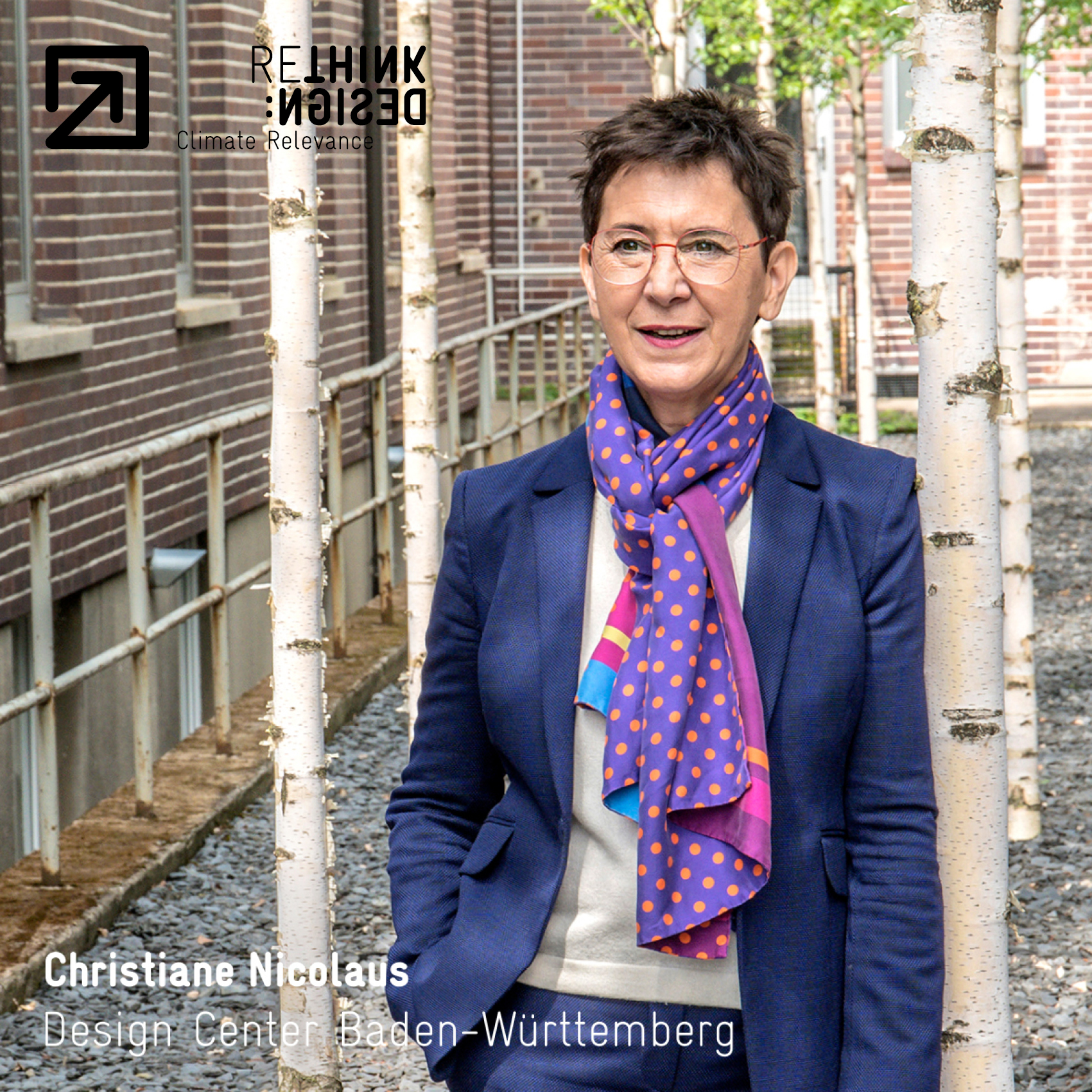
Christiane Nicolaus
“Sustainability is driving innovation!”
What can designers contribute in terms of saving the global climate? A lot, says Christiane Nicolaus, director of the Design Center Baden-Württemberg. She also believes that climate-friendly design can result in a competitive advantage. An interview about RETHINK:DESIGN and a new departure for an industry.
Read the interview here.
Are you also on your way to becoming climate-neutral? What prompted your decision?
Write to us at: design@rps.bwl.de

Christiane Nicolaus
“Sustainability is driving innovation!”
What can designers contribute in terms of saving the global climate? A lot, says Christiane Nicolaus, director of the Design Center Baden-Württemberg. She also believes that climate-friendly design can result in a competitive advantage. An interview about RETHINK:DESIGN and a new departure for an industry.
Read the interview here.
Are you also on your way to becoming climate-neutral? What prompted your decision?
Write to us at: design@rps.bwl.de